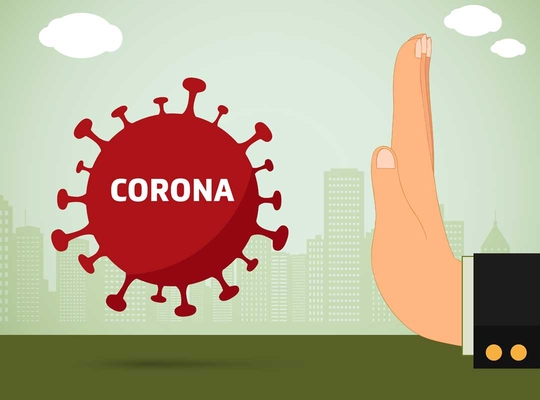You are here
Flemish coronavirus committee makes 119 recommendations for tackling the coronavirus further

The Flemish Parliament’s coronavirus committee has readied 119 recommendations for tackling the COVID-19 crisis further. The common thread is that measures and communication must be clear and targeted. The 119 recommendations were all approved.
The Ad hoc Committee for the Evaluation and Further Implementation of the Flemish Coronavirus Policy in the Flemish Parliament has been working diligently since June. The committee wants to evaluate the coronavirus policy that has been pursued and provide incentives to make quick adjustments. Before the summer break, they focused on residential care centres. Since the beginning of September, they have been looking at the broader area of well-being. Umbrella organisations, services and care providers came to testify about several themes and sectors: the sector of persons with disabilities, youth assistance, primary care (general practitioners), mental health care, childcare, the problems of vulnerable families and persons and finally, the consequences for poverty, inequality and homelessness.
Clear and targeted measures
The lockdown was a difficult balancing act between medical and mental well-being in several sectors. The impact of certain decisions on the well-being of residents, family and staff may have been underestimated,” say the N-VA members of the committee. The committee formulated 119 recommendations so that a second wave would be tackled differently. They put the recommendations in a resolution. The common thread is that measures and communication about them must be clear but also targeted and, if necessary, differentiated: each target group is different. Each group has a different risk profile, its own concerns and is subject to a different regime. At the same time, optimal coordination is needed so that decisions in one policy area do not have undesirable consequences in other contexts.
Flexible support for personal budgets
Personal budgets for people with disabilities must remain personal, also during the coronavirus pandemic. This was often not the case during the first wave, because the budgets remained in the institution or because people simply did not know how to use the extra funding to get the right help quickly. That is why we need to make a greater effort to raise awareness of the so-called cash budgets. The much-needed flexible support will therefore be continued in the home context.
Visiting rights in residential youth care facilities
Just as in residential care centres, visiting rights must also continue to be guaranteed in residential youth care and mental health care facilities. These mentally vulnerable target groups must always be able to maintain contact with their families. In addition, a clear framework for quarantine measures in youth services is important. It is completely unacceptable for young people to be separated from their communities for extended periods upon arrival at the facility and to find themselves in a kind of isolation, which often also results in reduced care.
Vigilance against domestic violence
Testimonies and figures during the hearings also showed an increase in stress and problems within families. That is why we are calling for increased vigilance regarding families and children where a troubling parenting situation, child abuse and other domestic violence is suspected during these times of a pandemic.
Childcare for all families with young children
Every parent, whether working from home or not, is faced with the challenge of combining work and family, especially in times of corona. Childcare must therefore remain open to all families with young children, even for parents who do not work in an essential sector. Explicit attention must be paid to the specific needs of childcare initiatives when drawing up plans, financial compensation and training initiatives and distributing personal protective equipment. Targeted attention and support is also needed for our informal carers, who are often not linked to a facility but do play an essential role.
Vulnerable people affected on several fronts at once
This health crisis is sparing no one. Everyone is affected in one way or another: in terms of health, income, psychosocial well-being, etc. If the work of this committee has taught us anything, it is that the most vulnerable are often affected on several fronts at the same time. But they disappeared from our radar quite often, or new groups of vulnerable people appeared that we had never seen before.
To avoid this or at least to detect it more quickly, we are calling for a better exchange of information between Flanders, with a wealth of data, and the local authorities. Of course, there are always people of flesh and blood behind these data. Often vulnerable people or families. These are often not yet known to their municipality or city, and at the same time could use a great deal of help and support. After all, the means for this have been provided.
Good vaccination plan vital
We are all waiting for a vaccine. A good vaccination plan against COVID-19 is therefore literally a matter of life or death. It must also be possible to implement a good plan. Aside from general practitioners, it must also be possible to involve other care providers. All possible help will be needed if we are to vaccinate everyone.

